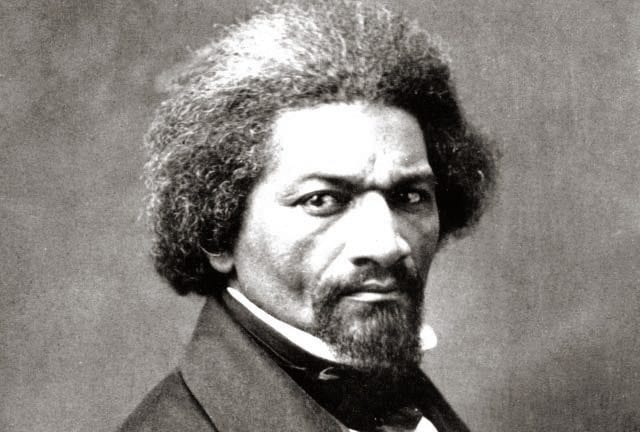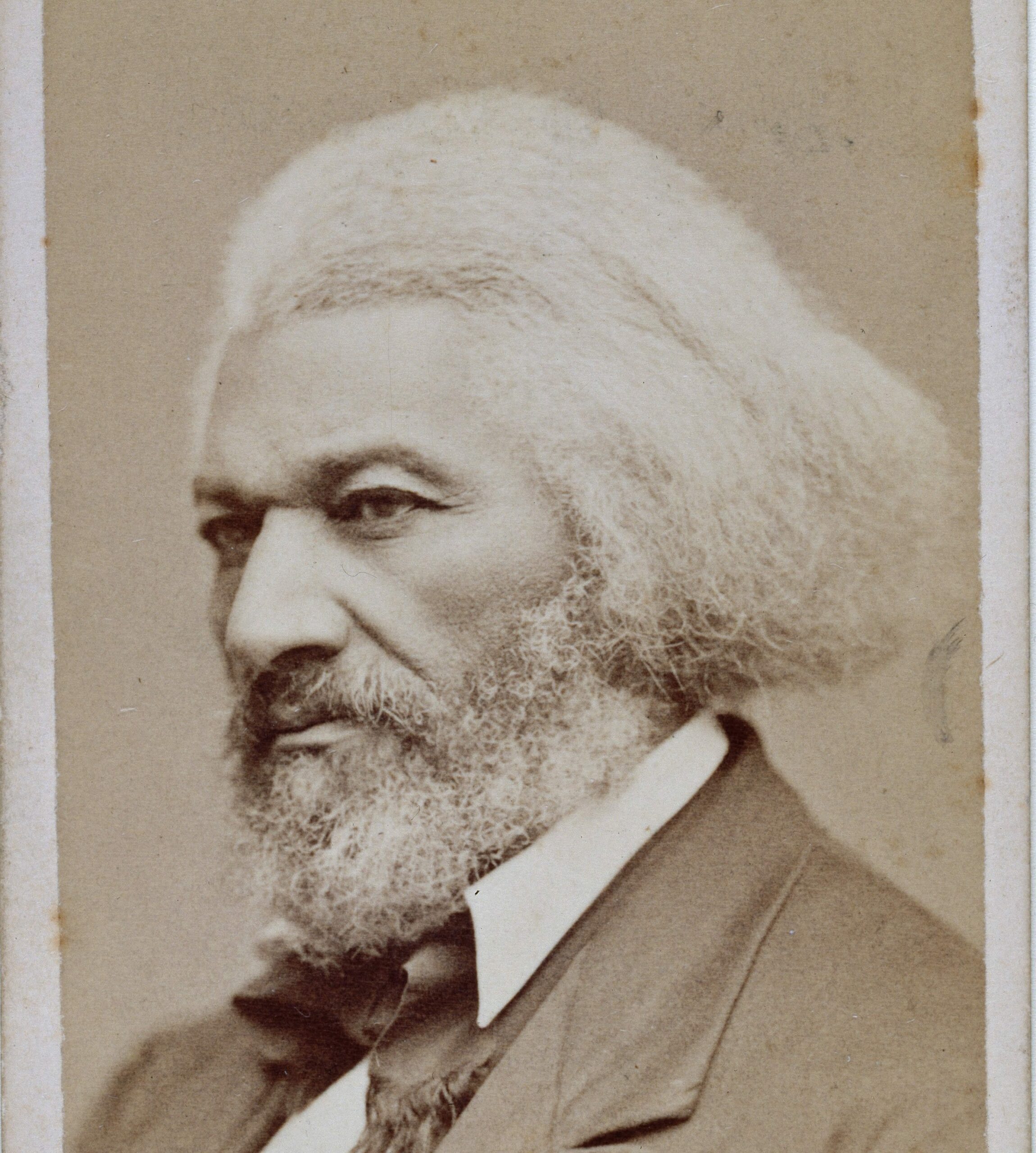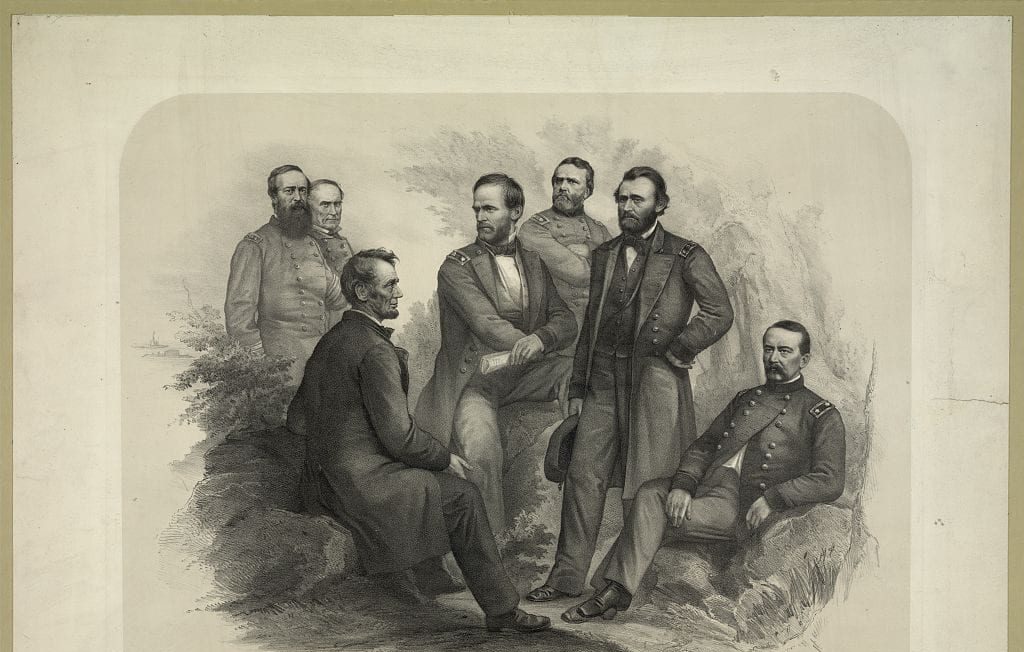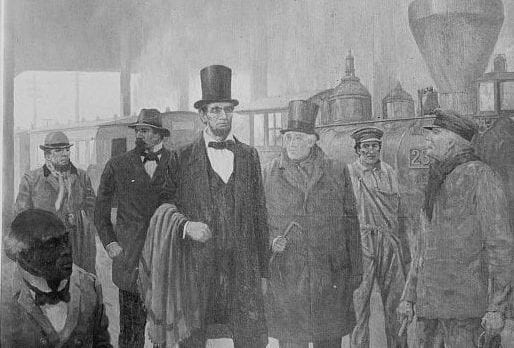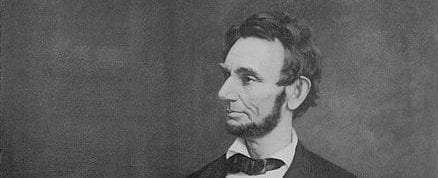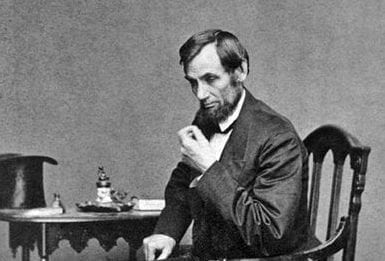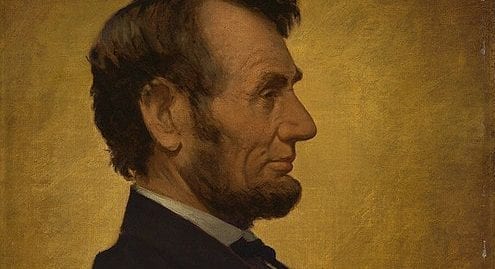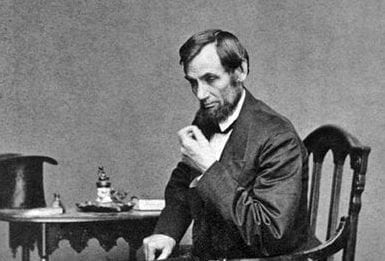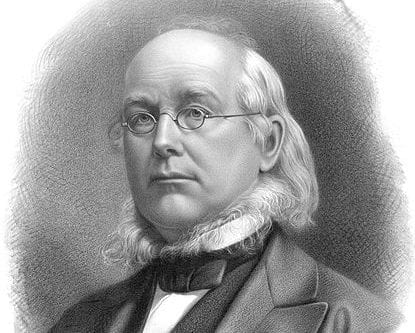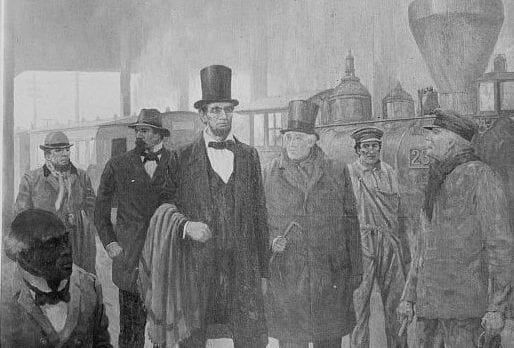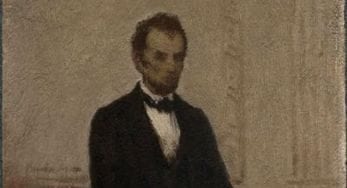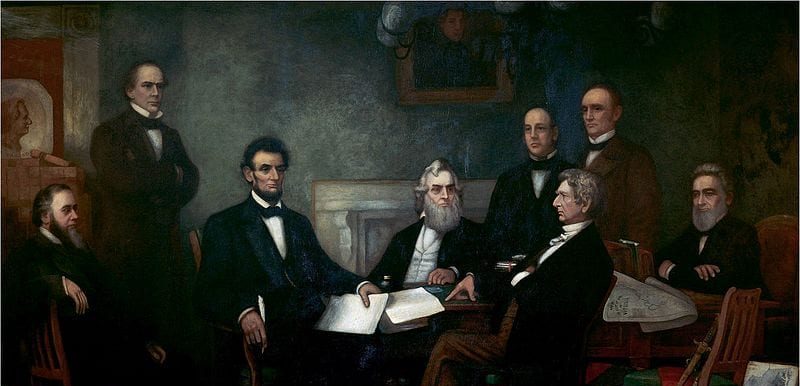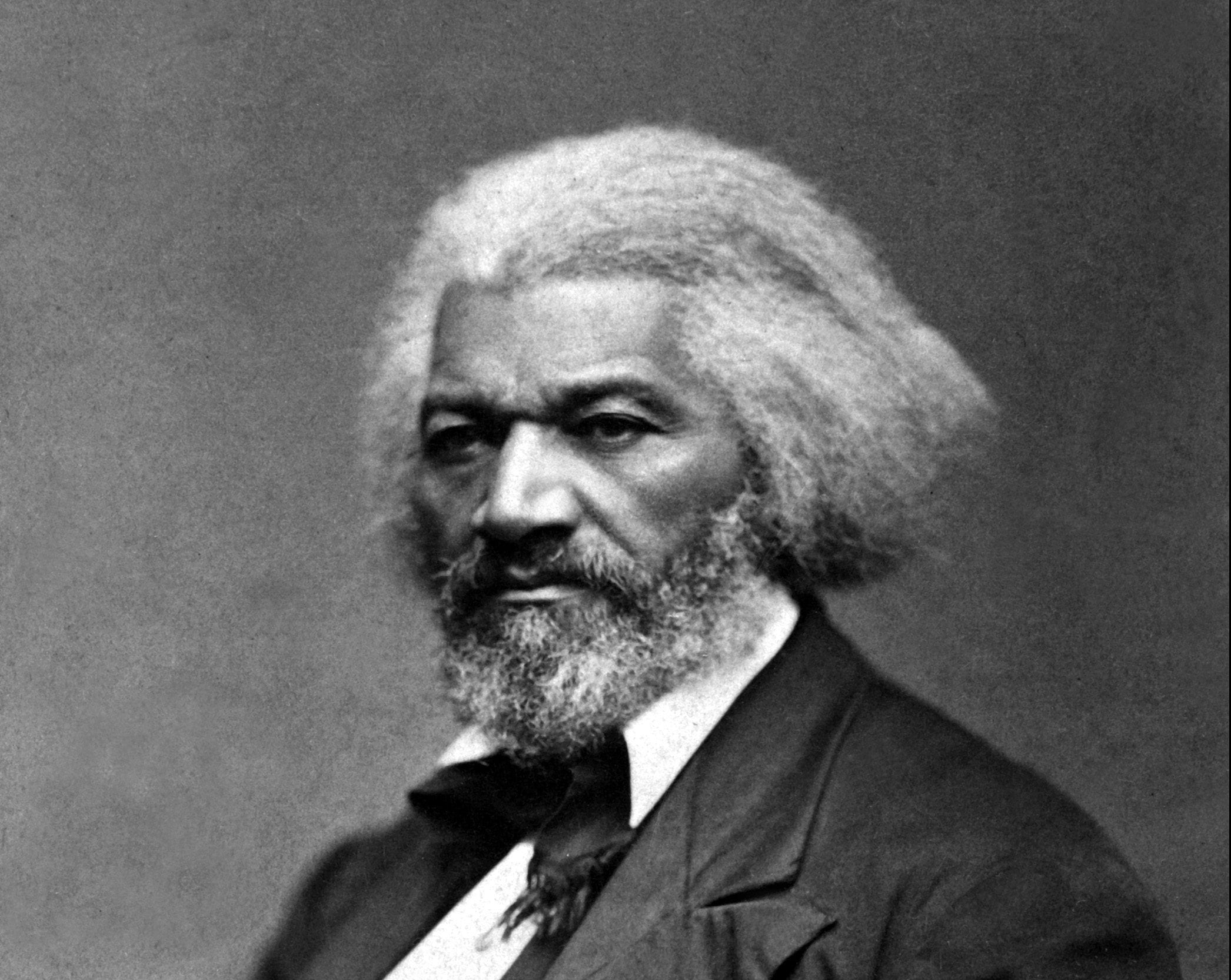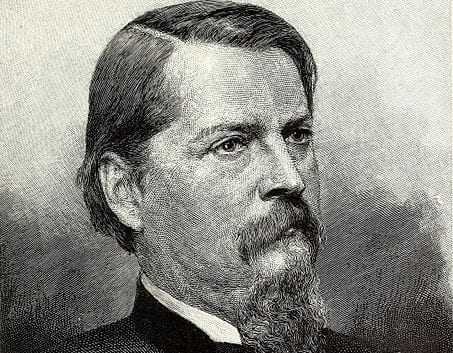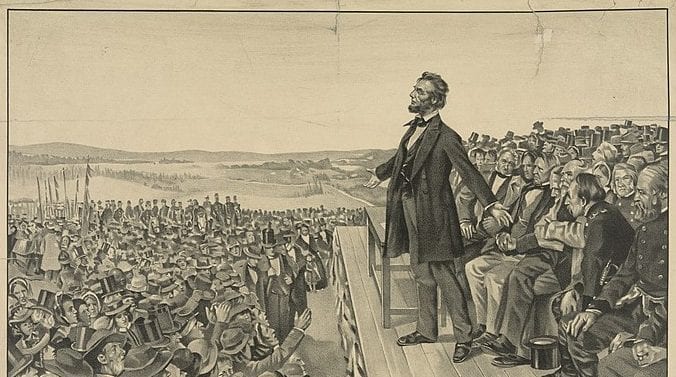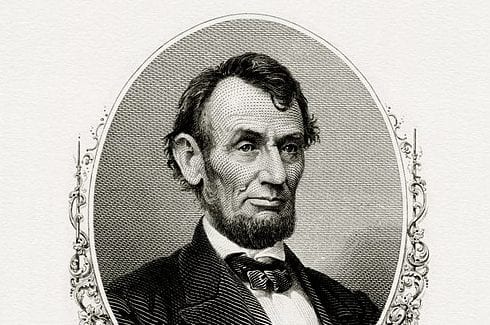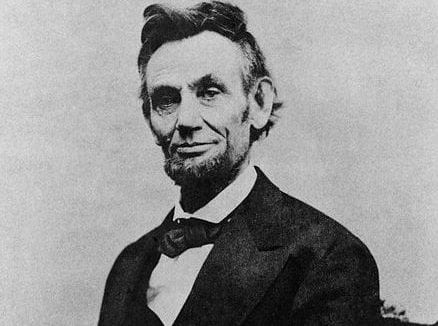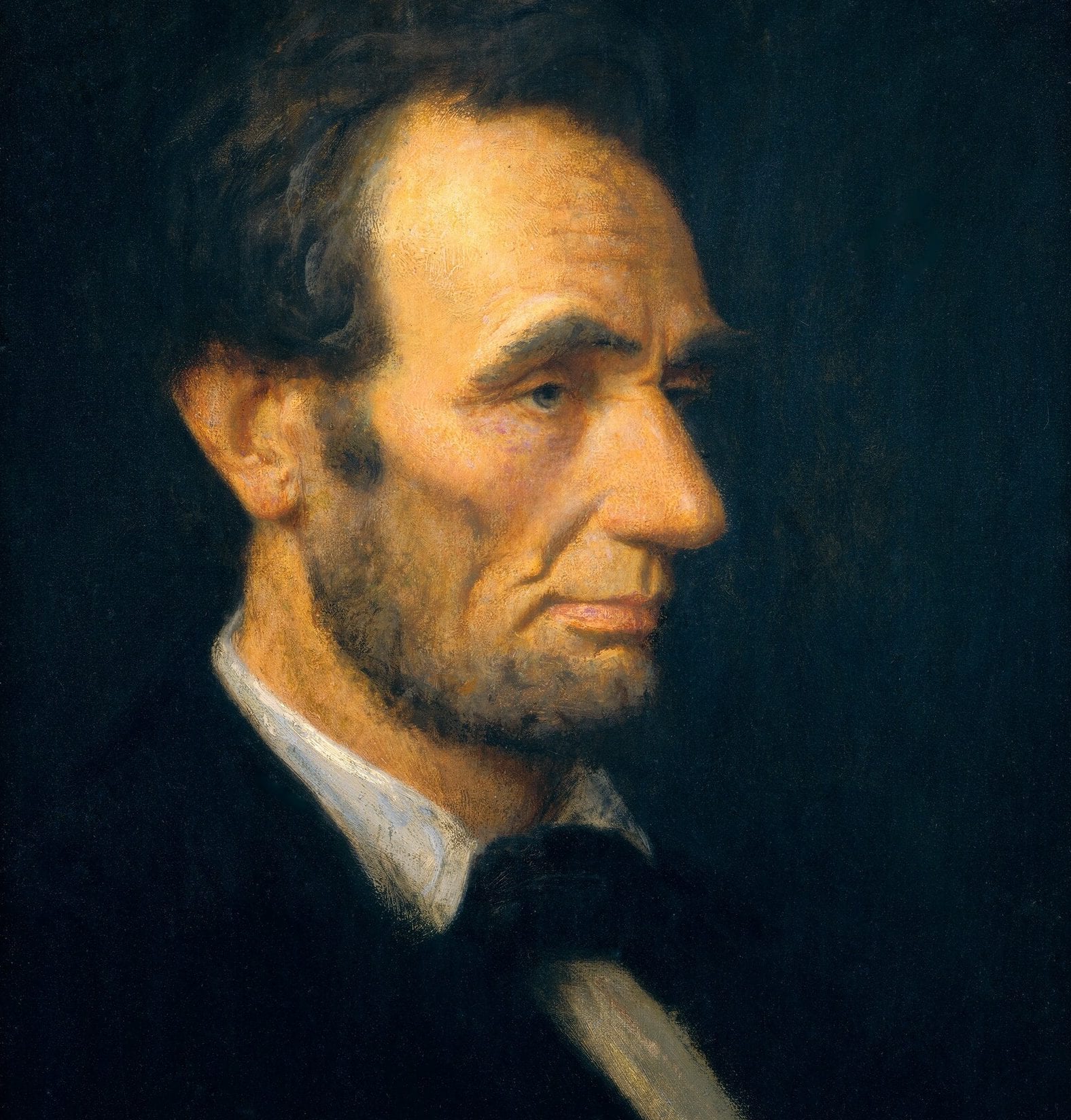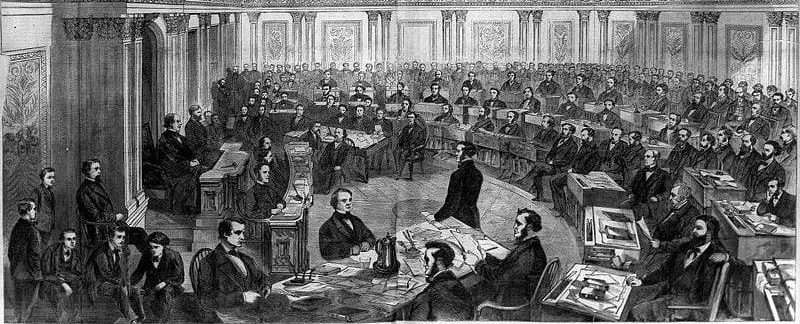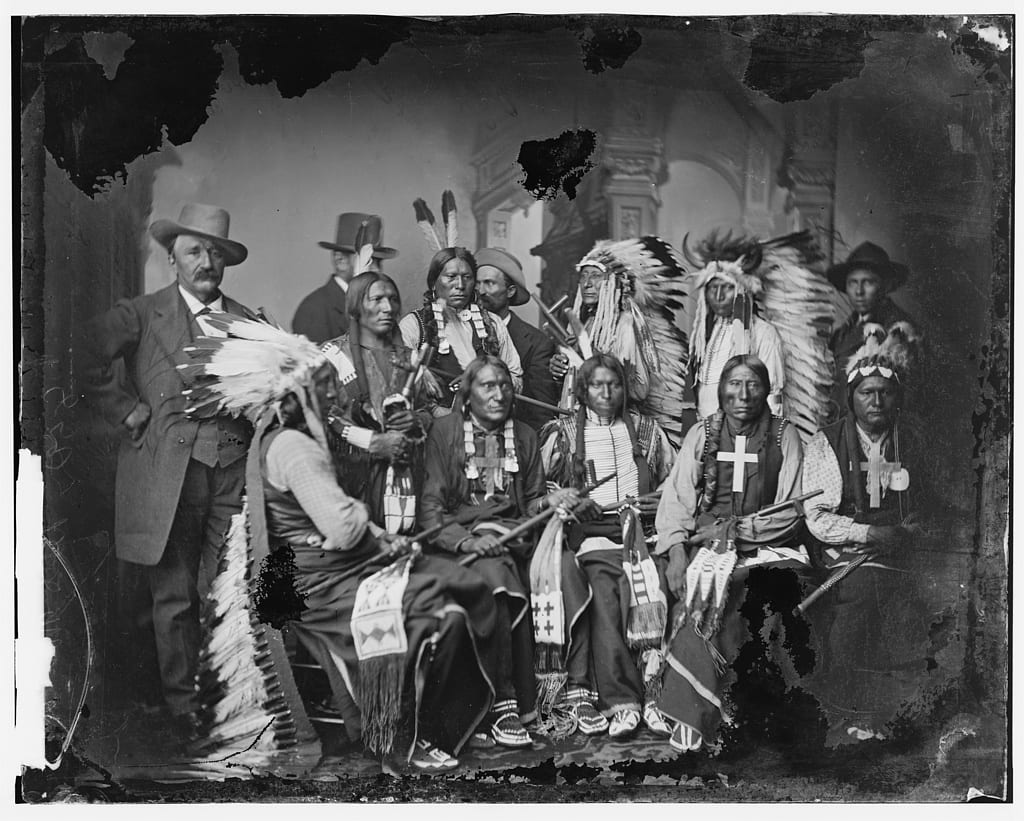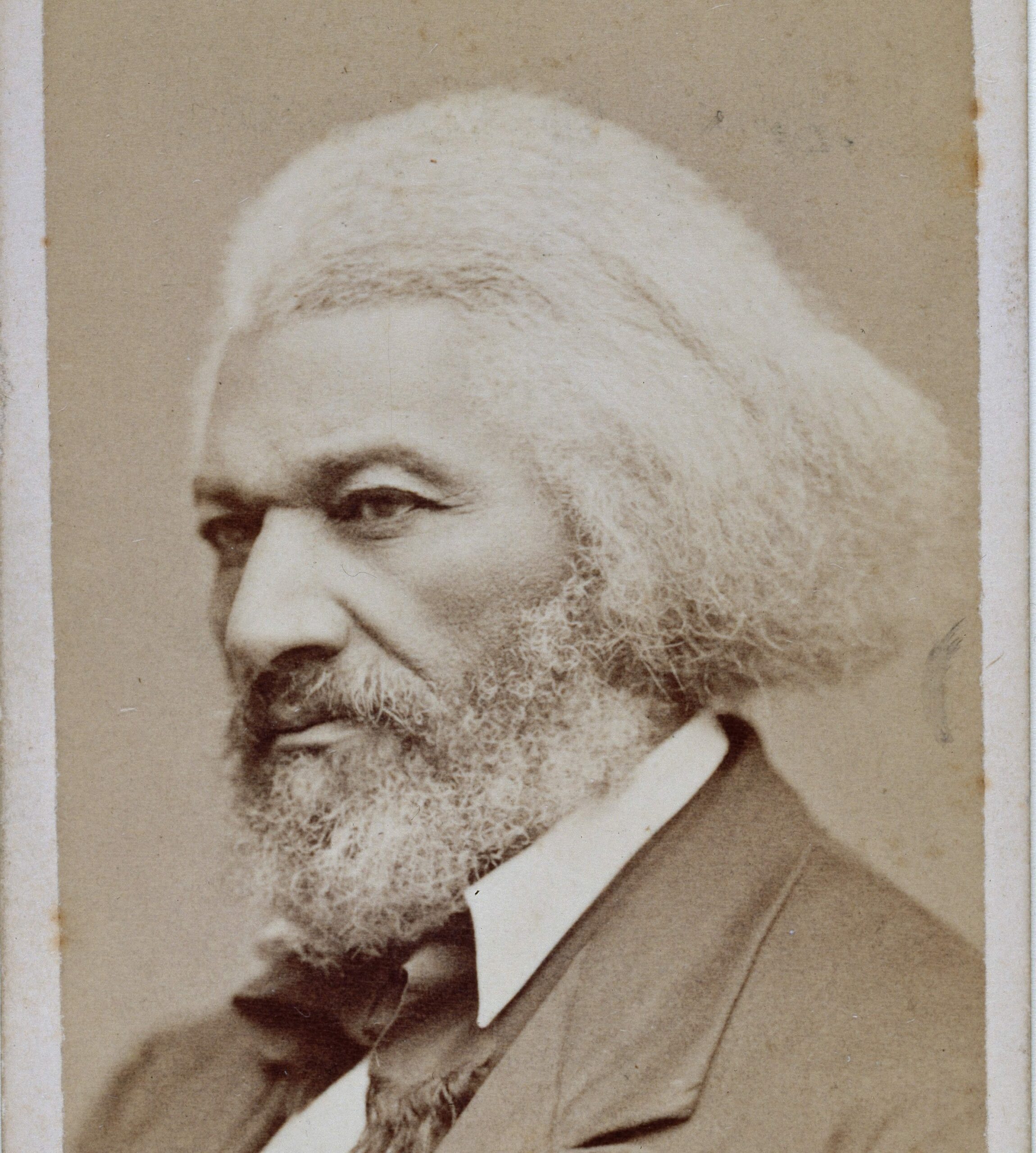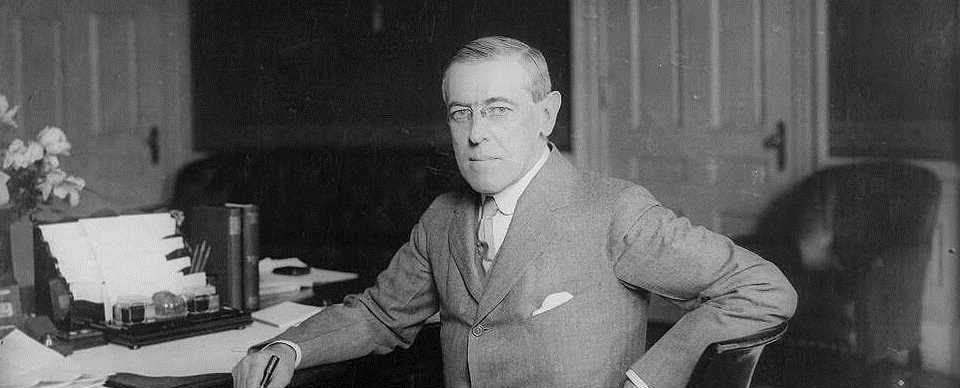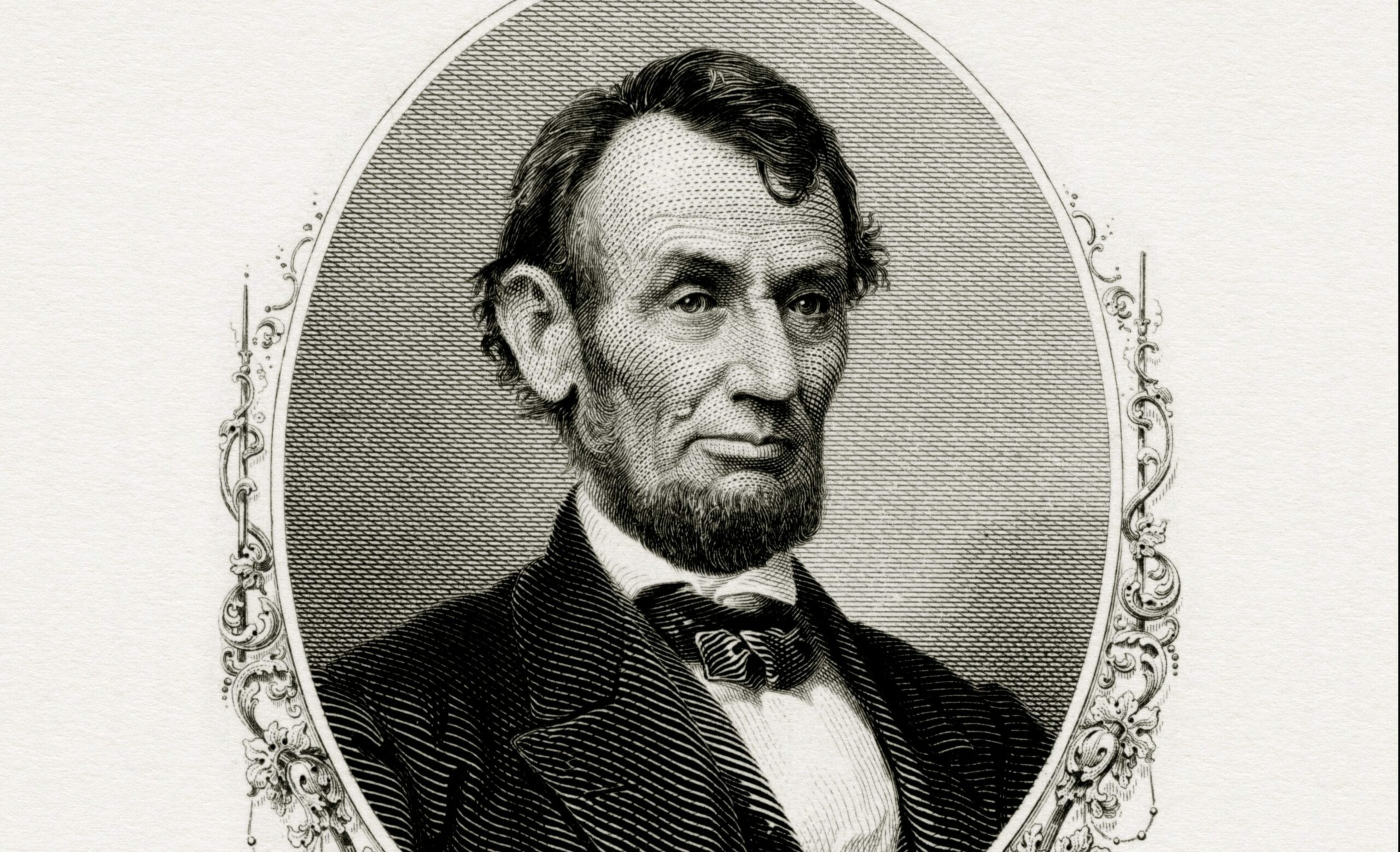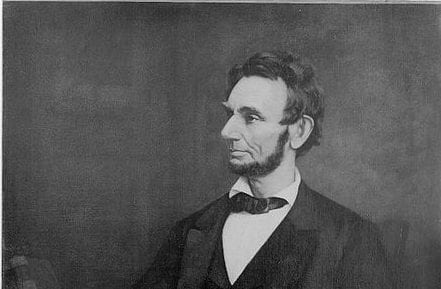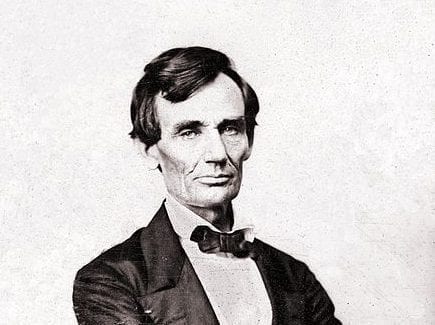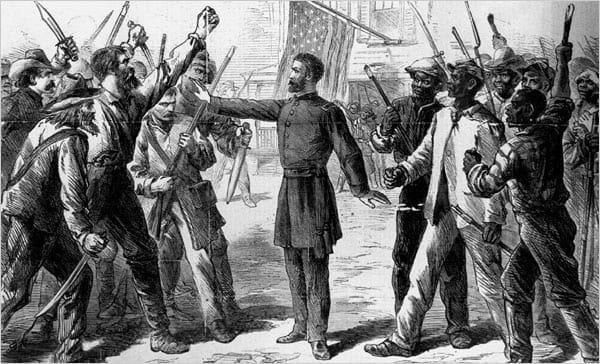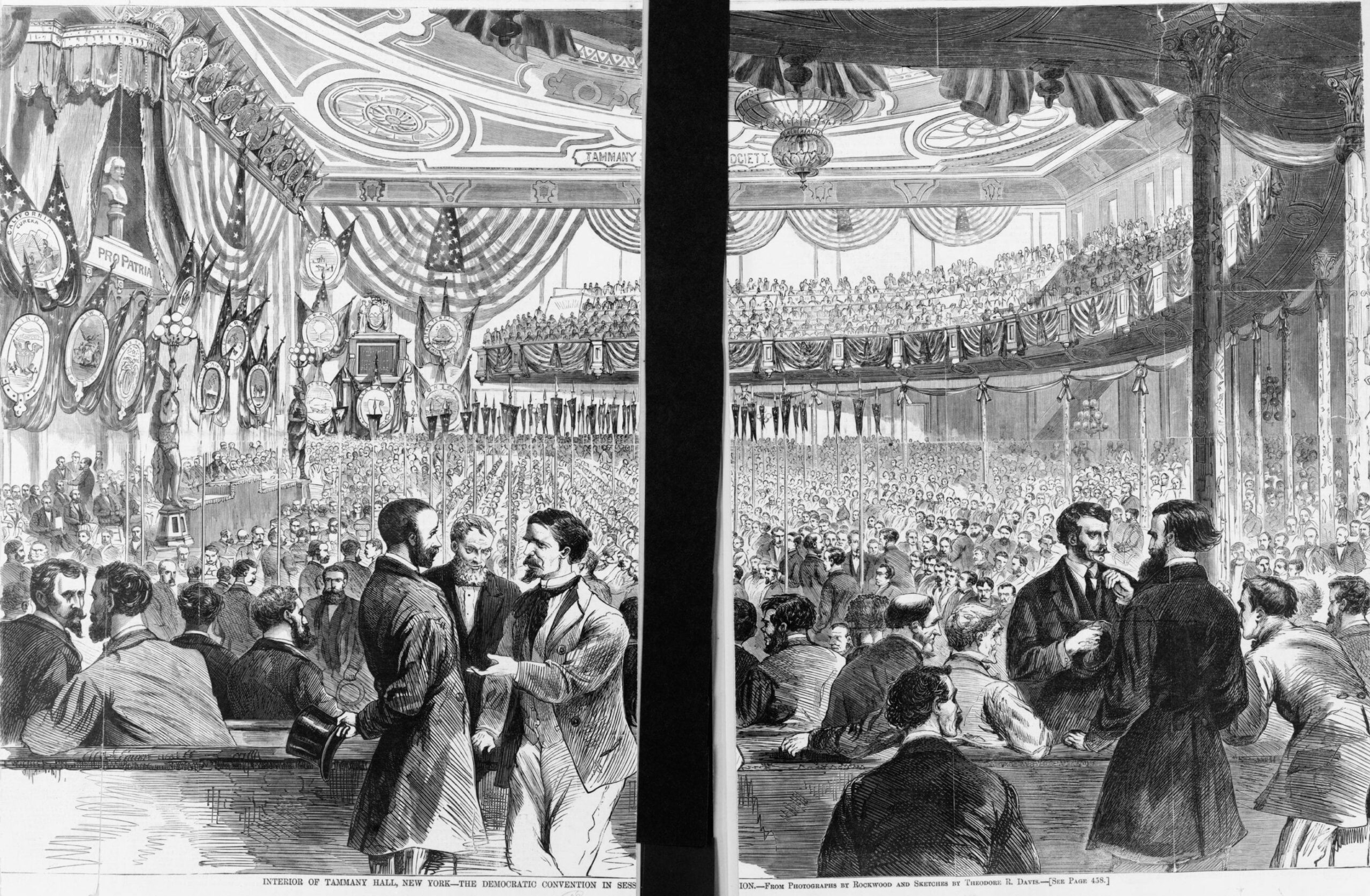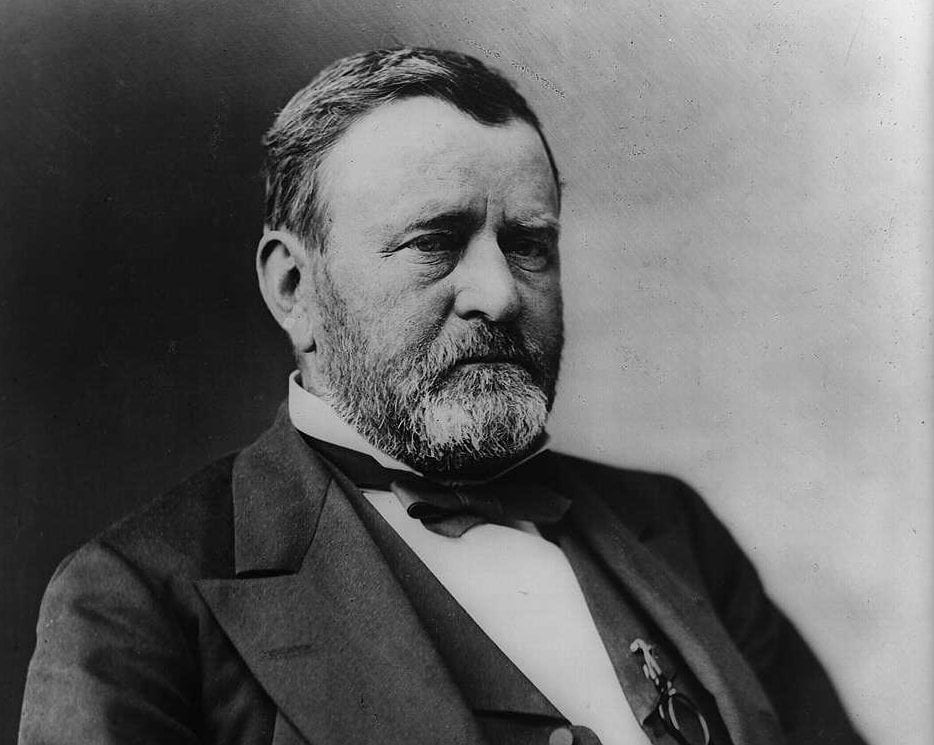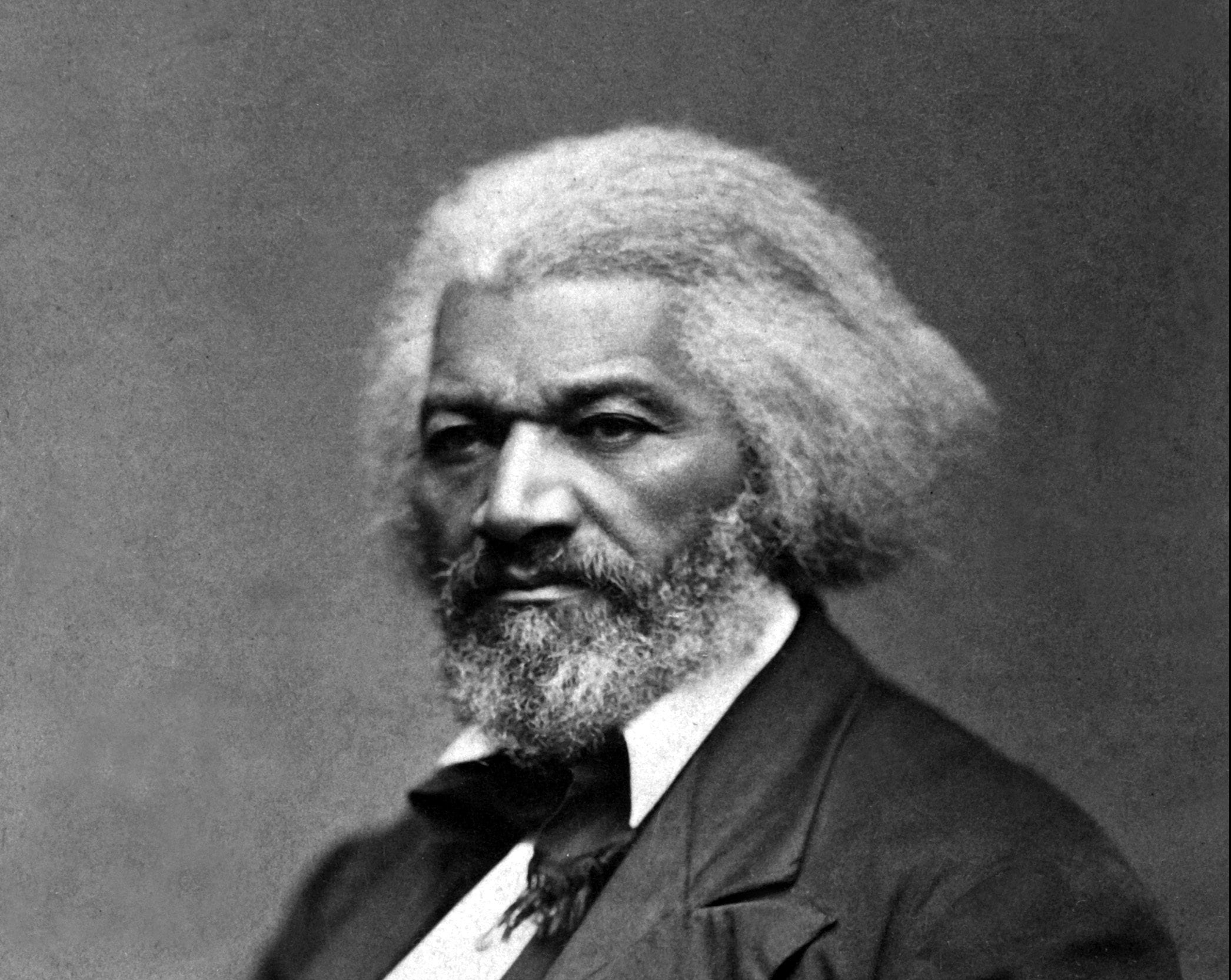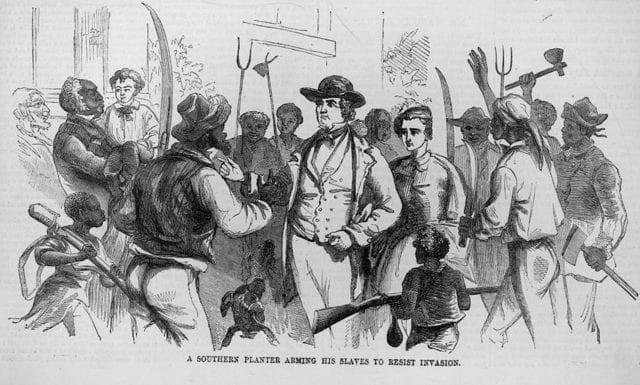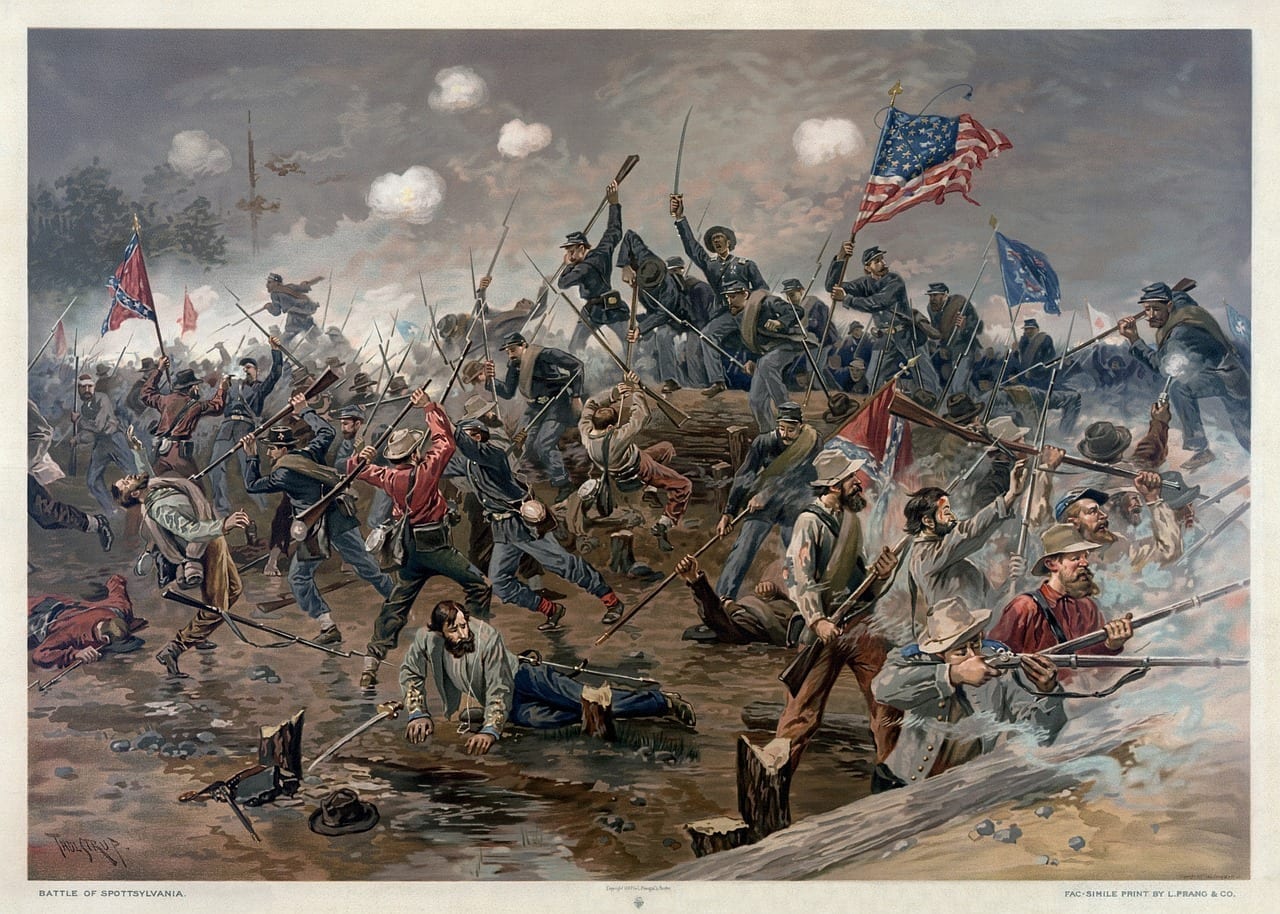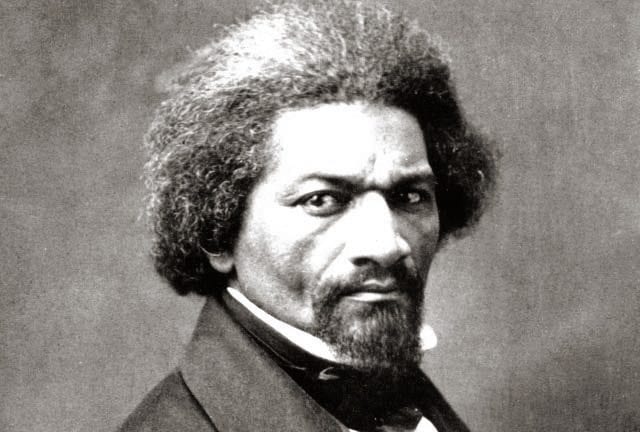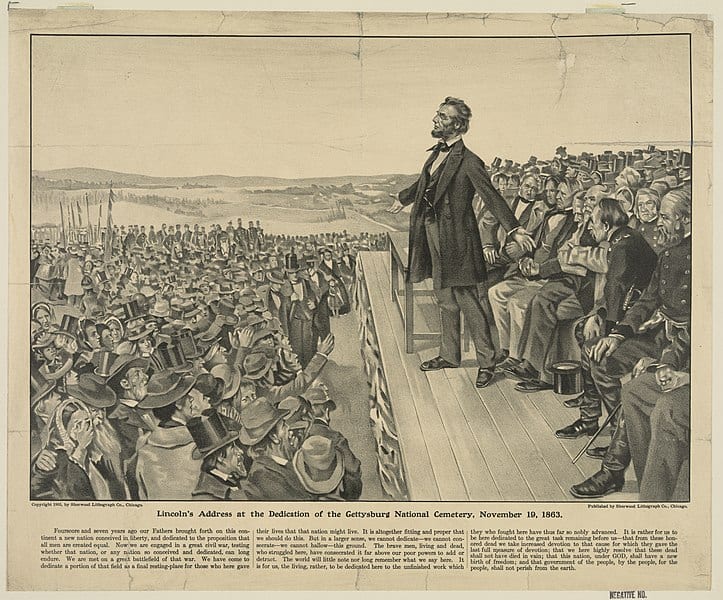


No related resources
Introduction
In the Slaughter-House Cases, the U.S. Supreme Court considered the meaning of the recently enacted Fourteenth Amendment, especially the provision declaring: “No state shall make or enforce any law which shall abridge the privileges or immunities of citizens of the United States.” The question before the Court in this case concerned the legitimacy of a Louisiana law granting a monopoly over the slaughterhouse business in the New Orleans area to a particular corporation. The Court’s decision declining to overturn this Louisiana law had far-reaching consequences by foreclosing the possibility of the Fourteenth Amendment’s “privileges or immunities” clause serving as a vehicle for federal judicial supervision of state legislation.
In his opinion for the Court, Justice Samuel F. Miller (1816–1890) noted that challenges to the Louisiana law relied in part on the Thirteenth Amendment’s ban on involuntary servitude and in part on Fourteenth Amendment provisions guaranteeing the privileges or immunities of citizens of the United States as well as due process and equal protection of the laws; but the “privileges or immunities” provision was “the one mainly relied on” by the plaintiffs (those bringing a case to a court of law). The key question, according to Justice Miller, was whether the framers of the Fourteenth Amendment intended in adopting this provision to “transfer the security and protection” of most civil rights that had previously been understood to be the responsibility of state governments to the federal government.
Justice Miller stressed the dramatic changes in federal-state relations that would be brought about if the Supreme Court were to interpret the “privileges or immunities” clause in the fashion advanced by plaintiffs. Moreover, accepting this proposition would make the Court a censor of state legislation involving civil rights, which would represent a dramatic change in the way the federal system had worked. Justice Miller concluded: “We are convinced that no such results were intended by the Congress which proposed these amendments, nor by the legislatures of the states which ratified them.”
The justices divided five to four in the Slaughter-House Cases. Justices Stephen J. Field (1816–1899), Joseph Bradley (1813–1892), and Noah H. Swayne (1804–1884) wrote lengthy dissenting opinions contending that the majority had adopted an unduly narrow interpretation of the Thirteenth and Fourteenth Amendments. Focusing on the Court’s interpretation of the Fourteenth Amendment in particular, Justice Swayne wrote: “The construction adopted by the majority of my brethren is, in my judgment, much too narrow. It defeats, by a limitation not anticipated, the intent of those by whom the instrument was framed and of those by whom it was adopted. To the extent of that limitation, it turns, as it were, what was meant for bread into a stone. By the Constitution as it stood before the war, ample protection was given against oppression by the Union, but little was given against wrong and oppression by the states. That want was intended to be supplied by this amendment.”
Source: 83 U.S. (16 Wall.) 36 (1873), https://www.law.cornell.edu/supremecourt/text/83/36
Mr. Justice MILLER ... delivered the opinion of the court.
These cases are brought here by writs of error to the Supreme Court of the State of Louisiana. They arise out of the efforts of the butchers of New Orleans to resist the Crescent City Live-Stock Landing and Slaughter-House Company in the exercise of certain powers conferred by the charter which created it, and which was granted by the legislature of that state....
The statute thus assailed as unconstitutional was passed March 8, 1869, and is entitled “An act to protect the health of the city of New Orleans, to locate the stock-landings and slaughter-houses, and to incorporate the Crescent City Live-Stock Landing and Slaughter-House Company.”...
This statute is denounced not only as creating a monopoly and conferring odious and exclusive privileges upon a small number of persons at the expense of the great body of the community of New Orleans, but it is asserted that it deprives a large and meritorious class of citizens—the whole of the butchers of the city—of the right to exercise their trade, the business to which they have been trained and on which they depend for the support of themselves and their families, and that the unrestricted exercise of the business of butchering is necessary to the daily subsistence of the population of the city....
The power here exercised by the legislature of Louisiana is, in its essential nature, one which has been, up to the present period in the constitutional history of this country, always conceded to belong to the states, however it may now be questioned in some of its details....
It may, therefore, be considered as established, that the authority of the legislature of Louisiana to pass the present statute is ample, unless some restraint in the exercise of that power be found in the constitution of that state or in the amendments to the Constitution of the United States adopted since the date of the decisions we have already cited.
If any such restraint is supposed to exist in the constitution of the state, the Supreme Court of Louisiana having necessarily passed on that question, it would not be open to review in this court.
The plaintiffs in error1 accepting this issue, allege that the statute is a violation of the Constitution of the United States in these several particulars:
That it creates an involuntary servitude forbidden by the thirteenth article of amendment;
That it abridges the privileges and immunities of citizens of the United States;
That it denies to the plaintiffs the equal protection of the laws; and,
That it deprives them of their property without due process of law; contrary to the provisions of the first section of the fourteenth article of amendment.
This court is thus called upon for the first time to give construction to these articles....
The first section of the fourteenth article, to which our attention is more specially invited, opens with a definition of citizenship—not only citizenship of the United States, but citizenship of the states. No such definition was previously found in the Constitution, nor had any attempt been made to define it by act of Congress. It had been the occasion of much discussion in the courts, by the executive departments, and in the public journals. It had been said by eminent judges that no man was a citizen of the United States, except as he was a citizen of one of the states composing the Union. Those, therefore, who had been born and resided always in the District of Columbia or in the Territories, though within the United States, were not citizens. Whether this proposition was sound or not had never been judicially decided. But it had been held by this court, in the celebrated Dred Scott case, only a few years before the outbreak of the Civil War, that a man of African descent, whether a slave or not, was not and could not be a citizen of a state or of the United States. This decision, while it met the condemnation of some of the ablest statesmen and constitutional lawyers of the country, had never been overruled; and if it was to be accepted as a constitutional limitation of the right of citizenship, then all the negro race who had recently been made freemen were still, not only not citizens, but were incapable of becoming so by anything short of an amendment to the Constitution.
To remove this difficulty primarily, and to establish a clear and comprehensive definition of citizenship which should declare what should constitute citizenship of the United States, and also citizenship of a state, the first clause of the first section was framed.
“All persons born or naturalized in the United States, and subject to the jurisdiction thereof, are citizens of the United States and of the state wherein they reside.”
The first observation we have to make on this clause is that it puts at rest both the questions which we stated to have been the subject of differences of opinion. It declares that persons may be citizens of the United States without regard to their citizenship of a particular state, and it overturns the Dred Scott decision by making all persons born within the United States and subject to its jurisdiction citizens of the United States. That its main purpose was to establish the citizenship of the negro can admit of no doubt. The phrase, “subject to its jurisdiction” was intended to exclude from its operation children of ministers, consuls, and citizens or subjects of foreign states born within the United States.
The next observation is more important in view of the arguments of counsel in the present case. It is, that the distinction between citizenship of the United States and citizenship of a state is clearly recognized and established. Not only may a man be a citizen of the United States without being a citizen of a state, but an important element is necessary to convert the former into the latter. He must reside within the state to make him a citizen of it, but it is only necessary that he should be born or naturalized in the United States to be a citizen of the Union.
It is quite clear, then, that there is a citizenship of the United States, and a citizenship of a state, which are distinct from each other, and which depend upon different characteristics or circumstances in the individual.
We think this distinction and its explicit recognition in this amendment of great weight in this argument, because the next paragraph of this same section, which is the one mainly relied on by the plaintiffs in error, speaks only of privileges and immunities of citizens of the United States, and does not speak of those of citizens of the several states. The argument, however, in favor of the plaintiffs rests wholly on the assumption that the citizenship is the same, and the privileges and immunities guaranteed by the clause are the same.
The language is, “No State shall make or enforce any law which shall abridge the privileges or immunities of citizens of the United States.” It is a little remarkable, if this clause was intended as a protection to the citizen of a state against the legislative power of his own state, that the word citizen of the state should be left out when it is so carefully used, and used in contradistinction to citizens of the United States, in the very sentence which precedes it. It is too clear for argument that the change in phraseology was adopted understandingly and with a purpose.
Of the privileges and immunities of the citizen of the United States, and of the privileges and immunities of the citizen of the state, and what they respectively are, we will presently consider; but we wish to state here that it is only the former which are placed by this clause under the protection of the federal Constitution, and that the latter, whatever they may be, are not intended to have any additional protection by this paragraph of the amendment....
It would be the vainest show of learning to attempt to prove by citations of authority that up to the adoption of the recent amendments, no claim or pretense was set up that those rights depended on the federal government for their existence or protection, beyond the very few express limitations which the federal Constitution imposed upon the states—such, for instance, as the prohibition against ex post facto laws, bills of attainder, and laws impairing the obligation of contracts.2 But with the exception of these and a few other restrictions, the entire domain of the privileges and immunities of citizens of the states, as above defined, lay within the constitutional and legislative power of the states, and without that of the federal government. Was it the purpose of the Fourteenth Amendment, by the simple declaration that no state should make or enforce any law which shall abridge the privileges and immunities of citizens of the United States, to transfer the security and protection of all the civil rights which we have mentioned, from the states to the federal government? And where it is declared that Congress shall have the power to enforce that article, was it intended to bring within the power of Congress the entire domain of civil rights heretofore belonging exclusively to the states?
All this and more must follow, if the proposition of the plaintiffs in error be sound. For not only are these rights subject to the control of Congress whenever in its discretion any of them are supposed to be abridged by state legislation, but that body may also pass laws in advance, limiting and restricting the exercise of legislative power by the states, in their most ordinary and usual functions, as in its judgment it may think proper on all such subjects. And still further, such a construction followed by the reversal of the judgments of the Supreme Court of Louisiana in these cases, would constitute this court a perpetual censor upon all legislation of the states, on the civil rights of their own citizens, with authority to nullify such as it did not approve as consistent with those rights, as they existed at the time of the adoption of this amendment. The argument we admit is not always the most conclusive which is drawn from the consequences urged against the adoption of a particular construction of an instrument. But when, as in the case before us, these consequences are so serious, so far-reaching and pervading, so great a departure from the structure and spirit of our institutions; when the effect is to fetter and degrade the state governments by subjecting them to the control of Congress, in the exercise of powers heretofore universally conceded to them of the most ordinary and fundamental character; when in fact it radically changes the whole theory of the relations of the state and federal governments to each other and of both these governments to the people; the argument has a force that is irresistible, in the absence of language which expresses such a purpose too clearly to admit of doubt.
We are convinced that no such results were intended by the Congress which proposed these amendments, nor by the legislatures of the states which ratified them.
Having shown that the privileges and immunities relied on in the argument are those which belong to citizens of the states as such, and that they are left to the state governments for security and protection, and not by this article placed under the special care of the federal government, we may hold ourselves excused from defining the privileges and immunities of citizens of the United States which no state can abridge, until some case involving those privileges may make it necessary to do so....
The argument has not been much pressed in these cases that the defendant’s charter deprives the plaintiffs of their property without due process of law, or that it denies to them the equal protection of the law. The first of these paragraphs has been in the Constitution since the adoption of the Fifth Amendment, as a restraint upon the federal power. It is also to be found in some form of expression in the constitutions of nearly all the states, as a restraint upon the power of the states. This law then, has practically been the same as it now is during the existence of the government, except so far as the present amendment may place the restraining power over the states in this matter in the hands of the federal government.
We are not without judicial interpretation, therefore, both state and national, of the meaning of this clause. And it is sufficient to say that under no construction of that provision that we have ever seen, or any that we deem admissible, can the restraint imposed by the state of Louisiana upon the exercise of their trade by the butchers of New Orleans be held to be a deprivation of property within the meaning of that provision.
“Nor shall any state deny to any person within its jurisdiction the equal protection of the laws.”
In the light of the history of these amendments, and the pervading purpose of them, which we have already discussed, it is not difficult to give a meaning to this clause. The existence of laws in the states where the newly emancipated negroes resided, which discriminated with gross injustice and hardship against them as a class, was the evil to be remedied by this clause, and by it such laws are forbidden.
If, however, the states did not conform their laws to its requirements, then by the fifth section of the article of amendment Congress was authorized to enforce it by suitable legislation. We doubt very much whether any action of a state not directed by way of discrimination against the negroes as a class, or on account of their race, will ever be held to come within the purview of this provision. It is so clearly a provision for that race and that emergency, that a strong case would be necessary for its application to any other. But as it is a state that is to be dealt with, and not alone the validity of its laws, we may safely leave that matter until Congress shall have exercised its power, or some case of state oppression, by denial of equal justice in its courts, shall have claimed a decision at our hands. We find no such case in the one before us, and do not deem it necessary to go over the argument again, as it may have relation to this particular clause of the amendment.
In the early history of the organization of the government, its statesmen seem to have divided on the line which should separate the powers of the national government from those of the state governments, and though this line has never been very well defined in public opinion, such a division has continued from that day to this.
The adoption of the first eleven amendments to the Constitution so soon after the original instrument was accepted, shows a prevailing sense of danger at that time from the federal power. And it cannot be denied that such a jealousy continued to exist with many patriotic men until the breaking out of the late Civil War. It was then discovered that the true danger to the perpetuity of the Union was in the capacity of the state organizations to combine and concentrate all the powers of the state, and of contiguous states, for a determined resistance to the general government.
Unquestionably this has given great force to the argument, and added largely to the number of those who believe in the necessity of a strong national government.
But, however pervading this sentiment, and however it may have contributed to the adoption of the amendments we have been considering, we do not see in those amendments any purpose to destroy the main features of the general system. Under the pressure of all the excited feeling growing out of the war, our statemen have still believed that the existence of the state with powers for domestic and local government, including the regulation of civil rights—the rights of person and of property—was essential to the perfect working of our complex form of government, though they have thought proper to impose additional limitations on the states, and to confer additional power on that of the nation.
But whatever fluctuations may be seen in the history of public opinion on this subject during the period of our national existence, we think it will be found that this Court, so far as its functions required, has always held with a steady and an even hand the balance between state and federal power, and we trust that such may continue to be the history of its relation to that subject so long as it shall have duties to perform which demand of it a construction of the Constitution, or of any of its parts....

Conversation-based seminars for collegial PD, one-day and multi-day seminars, graduate credit seminars (MA degree), online and in-person.


